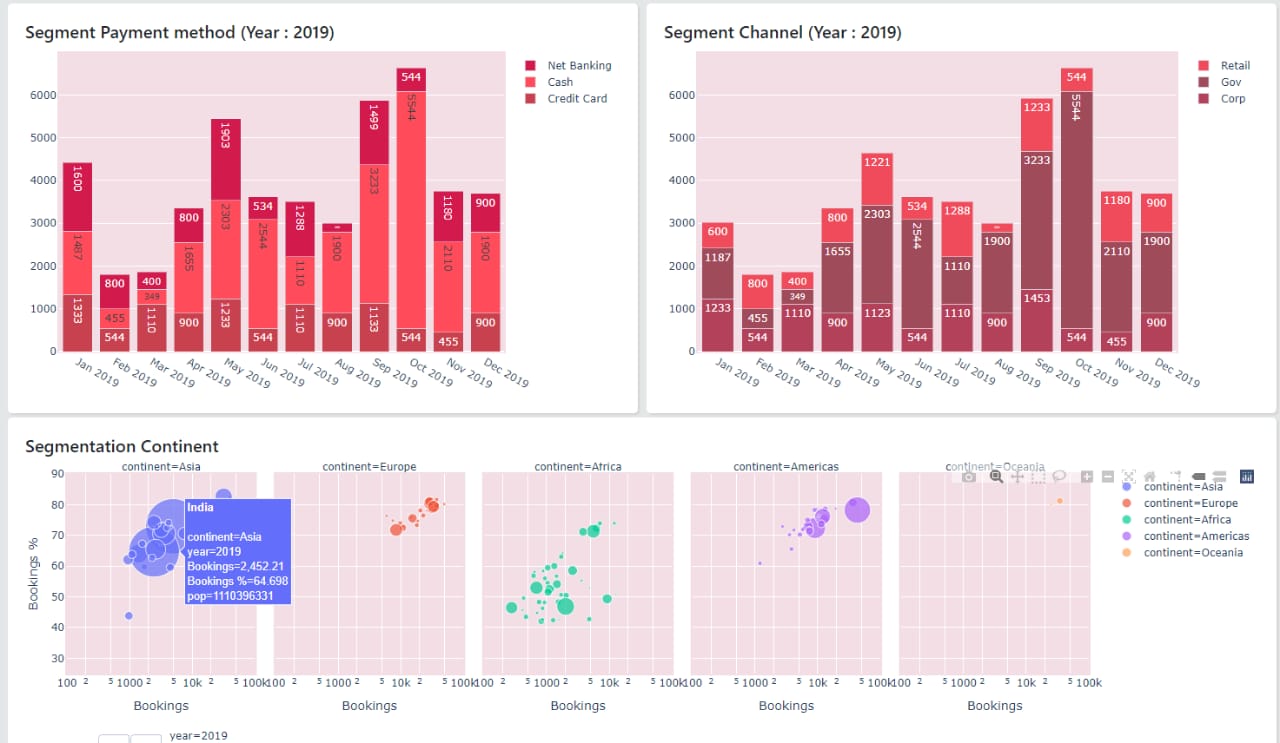- Contact: +91 9958374323
- Email: info@analytx4t.com

Companies across multiple industries have been extensively analysing target market segments to reach the right customers with highly customized messaging for decades. Artificial Intelligence or AI has inspired many travel or hospitality businesses to bring a transformation in their strategy and the industry are now rethinking segmentation strategies to deliver actionable segmentations in the most effective way.
How Travelytix Segmenting helps your business
Segmenting customers accurately is important since it will increase the response rate. Plus, personalized marketing messages are extremely relevant to customers who are reading them. Hence, with great relevance, one can expect results that are better than any non-personalized campaign.
AI Powered Customer Segmentation in Travel Industry
Artificial Intelligence or AI offers some superbly vivid use cases of real-time analytics in the domain of travel and tourism. Using forecasting data facilitates tourism to forecast travel-related activity for a particular customer segment and time duration. This will help in identifying long-term as well as short-term chances for new deals in the industry.
Personalization is the initial step in this process. Delivering personalized services to the clients paves the way for improved engagement, the highest levels of loyalty, and noteworthy revenues. To customize customer services, travel businesses are moving ahead with AI and likewise technologies. Seasoned Artificial Intelligence experts consider AI as the biggest game-changer in the travel space. Identifying potential operational challenges and making AI-powered business decisions can take the businesses a notch higher.
Encouraging Customer Engagement with AI-Powered Customer Segmentation
As a traveling company, you may have a client across the world. Nonetheless, you may wish to offer special deals on festive occasions to your customers in India, which may not be as relevant to your clients living in other countries.
This is exactly where customer segmentation comes handy. Now, you must be wondering, what does customer segmentation involve? This is the procedure in which we segregate the customers based on their preferences and adaption of the general stack of services to reach each customer, targeting what they actually need. This process will not just allow you to track more deals by offering customers what’s needed, but also keeps your customers pretty close to you and foster brilliant brand loyalty.
Segmentation implies categorizing guests into groups according to different factors like marital status, the reason behind traveling, age, the new or returning client. Since price elasticity varies from one customer to another, accurate segmentation also impacts price policies. Machine learning facilitates detailed classification and making tailored services or deals to your customers according to their requirements and price sensitivity.
The next common application is clustering – AI-driven segmentation based on hidden relationships between several data variables. Mainly, you can implement clustering principles to nuance your segmentation and enhance it with extensive customer insight.
A nicely-structured forecast is efficient enough to capture a good degree of market segmentation, knowing that each customer segment can have different preferences, booking patterns, and buying intentions.
For instance, a family who is taking a leisure holiday will have distinctive needs than a business traveler who is going to attend a convention. Predicting demands as well as conditions for every customer segment can help you better target your marketing, achieve an optimal business mix, and manage your operational expenses – understanding at given duration which business to turn down or take.
Final Thoughts
There is brilliant potential when artificial intelligence is extensively integrated into the travel industry. Apparently, nowadays, businesses are moving towards smarter way of marketing and attracting customers. The amazing combination of AI and travel can help businesses thrive and ensure significant value to the customers.
Recent Comments